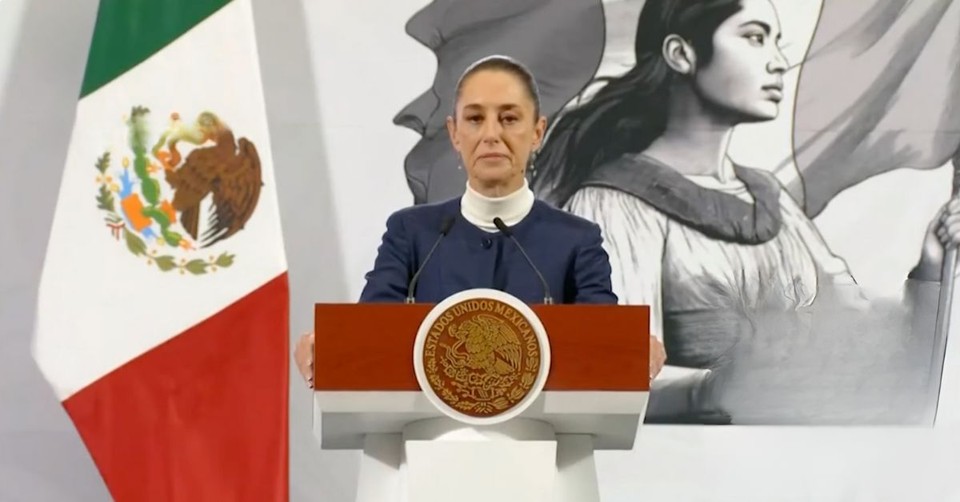Mexico and Canada Strike Deal with Trump to Avoid Tariffs as China Threatens Retaliation

President Donald Trump has paused tariffs imposed on Mexico and Canada for one month after their respective leaders agreed with Trump on various trade and security issues. The president initially declared an economic emergency on Saturday and placed a 10 percent tariff on all imports from China and 25 percent on most imports from Mexico and Canada, except a 10 percent rate on Canadian oil, Breaking Christian News reports.
Both leaders, Mexican President Claudia Sheinbaum and Canadian Prime Minister Justin Trudeau, initially responded to Trump before changing course. Meanwhile, China's Ministry of Foreign Affairs said the regime would "firmly deplore and oppose this move" by implementing countermeasures in defense of the country's interests, according to CBN News.
On Monday, Sheinbaum announced that both sides have come to an agreement on border enforcement.
"Mexico will reinforce the northern border with 10,000 members of the National Guard immediately to stop drug trafficking from Mexico to the United States, in particular fentanyl," Sheinbuam wrote on X.
She had previously ordered retaliatory tariffs, and China's Ministry of Foreign Affairs said the regime would "firmly deplore and oppose this move" by taking countermeasures to defend the country's interests.
Additionally, the U.S. will reportedly commit to preventing high-powered weapons from reaching Mexico.
Later Monday afternoon, the U.S. and Canada also came to an agreement to pause the tariffs.
In a post on X, Canadian Prime Minister Justin Trudeau stated that the pause would take place while they "work together." He added that his government would appoint a fentanyl czar, designate Mexican cartels as terrorist groups, and launch a "Canada-U.S. joint strike force to combat organized crime, fentanyl, and money laundering."
I just had a good call with President Trump. Canada is implementing our $1.3 billion border plan — reinforcing the border with new choppers, technology and personnel, enhanced coordination with our American partners, and increased resources to stop the flow of fentanyl. Nearly…
— Justin Trudeau (@JustinTrudeau) February 3, 2025
The U.S. also reached an agreement in which Panama has committed to end a major development deal with China, which has been a growing influence in Latin American countries.
Panama's President Jose Raul Mulino said that his country will continue operating the canal despite Trump's complaints that China is controlling it and saying he wants the U.S. to be more influential over the critical trade route instead of being just a communist adversary.
"The United States cannot, and will not, allow the Chinese communist party to continue with its effective and growing control over the Panama Canal area," U.S. Secretary of State Marco Rubio tweeted.
I met with Panamanian President @JoseRaulMulino and Foreign Minister @javierachapma to make clear that the United States cannot, and will not, allow the Chinese Communist Party to continue with its effective and growing control over the Panama Canal area. We also discussed… pic.twitter.com/Hj0pXGahqk
— Secretary Marco Rubio (@SecRubio) February 2, 2025
Photo Credit: ©YouTube/CNN

Originally published February 04, 2025.





